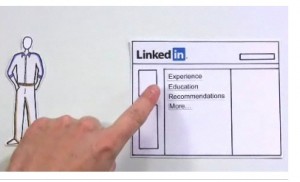Paper Resumes – Almost Time to Say Good-Bye to Traditional Format?
Every spring, another group of college seniors, ready to set off on the quest for permanent employment, begins the process of creating that all important document, their resume. Working with campus career offices, students begin to polish up what turns out to be one of the most critical components of the job search process.
The Importance of the Resume
Lindsey Pollak, a Gen Y career and workplace expert, notes that resumes will always play a prominent role in the hiring process. First, such documents serve a very clear purpose.
“Having one relatively standard resume format allows recruiters to compare apples to apples,” states Pollak. The career advice blogger also notes the importance of a specific or traditional format.
“I’m a big fan of the one-page resume because it requires job seekers to be clear and concise in selling themselves. It’s just not realistic for people to submit huge notebooks of information or 20-page bios when applying for jobs.”
Greening of Society
 Though resume creation will remain a right of passage for the foreseeable future, technology has begun rendering the long-standing traditional paper format less and less important. Pollak sees the traditional format as potentially giving way to its digital equivalent over the next ten years.
Though resume creation will remain a right of passage for the foreseeable future, technology has begun rendering the long-standing traditional paper format less and less important. Pollak sees the traditional format as potentially giving way to its digital equivalent over the next ten years.
Part of the reason is the current concerns of global warming and a renewed emphasis on the environment.
“One reason I think resumes may become obsolete is because of the amount of paper it wastes,” states Pollak. “We are moving toward an all-digital society, so it makes sense that fancy-paper resumes will go the way of the cassette tape.”
However, the author of Getting from College to Career: 90 Things to Do Before You Join the Real World sees the current social networking interests of students also being a key catalyst. The popularity of such networking has led more and more potential workers to pursue jobs through this environment.
Need for a Primary Format
However, the ‘apples to apples’ comparison aspect means that employers will likely want an agreed-upon format, one that will allow them to make distinctions between candidates. The need for one primary model has employers looking at the most popular and useful site created to date, LinkedIn.
“Already, recruiters are using LinkedIn to source talent,” states the frequent on-campus speaker. “It’s professional, but allows people more room to describe their accomplishments, post links to their work, demonstrate the depth of their professional network (very important for a sales position, for example) and include recommendations from past employers and colleagues.”
In other words, the site allows workers to collect meaningful info in one place, helping them become more than an SAT score or GPA.

Pollak, has shared her views on electronic resumes on her own blog site. Online formats will “allow job seekers to demonstrate their writing skills, the depth of their professional network, links to relevant work online, recommendations from employers and peers.”
While noting that LinkedIn leads the way, time could well change that as well.
“Employers seem to be happy with LinkedIn, and that site has certainly become the leader in the professional networking field,” states Pollak. “Of course in the future other sites might come along.”
Indeed, others are emerging, sites like Emurse.com and VisualCV.com. In the case of Emurse, you can create, share and store your resume online for free. Once created you can then share it with potential employers. VisualCV.com lets you share different versions of your resume with various employees, coworkers, and friends. VisualCV also allows a person to include video samples of their best work.
New Recruitment Process Emerging
The premise of online resumes could well change the job recruitment process entirely. Instead of employers posting an opening on a job board, their human resource office personnel will likely be scouring the web for potential workers that they might like to invite in for an interview.
 Pollak indicates that option is happening already.
Pollak indicates that option is happening already.
“Headhunters and recruiters are well aware of many candidates and they scour LinkedIn, Facebook, Twitter, Google and other places all the time,” she notes. “My own husband got recruited for his last job on LinkedIn!”
What makes the online resume environment even more enticing is the way that job matches are occurring.
“Right now, job matches are happening in a wide variety of ways, so savvy job seekers should pursue them all,” adds Pollak. “There is never a ‘guaranteed’ way to find a job, but I think we are very fortunate that right now there are so many potential places to look.”
Career Office
So seniors, as you head down to the campus career office this spring for the annual rite of passage, be sure to ask about LinkedIn and other possible social networking sites affiliated with your college. Today’s resume construction process means far more than developing a one page document on some fancy paper.
According to Pollak, it also means “reaching out to companies and recruiters, using headhunters, talking to people on airplanes, etc.”
And in today’s technology-oriented world, it also means “building a presence on social networks.”


Another website dedicated in helping students market themselves is nuResume.com where students can build their free resume online, brand their portfolios, post jobs wanted ads, and a whole lot more. Internships and scholarships await those with outstanding profiles.
I don’t disagree that web-based resumes are on the rise (I work at a company that provides software to build them!), but I really doubt they’ll be gone in the next decade. Institutions — both career centers and businesses — using social media are still the minority. The organizational shift that would have to take place to make a resume-less society a reality is enormous, and organizations just don’t change that quickly. I’m sure screening will move toward standardization, but I can’t imagine a time when the advice to bring a paper resume to your interview is outdated.